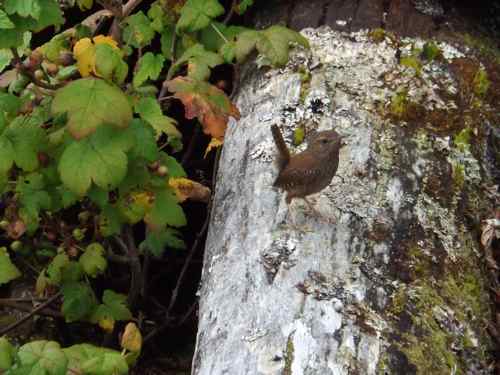As migrating songbirds arrive in our region, they “set up shop” around our homestead, singing loudly to establish their territories. Perhaps loudest of all, our steadfast year ’round neighbor, the wrens, sing as if to chide all others as late comers. This constant friend of our yards and beaches, delighting us with tiny, feathered company through the coldest parts of the year, continues to bring us joy in the warmer months (see Cock of the Walk).
Now, however, that joy seems slightly diminished. Certainly not for the wren, but for us.
What we have known all our lives has now been identified as a genetically separate wren from the winter wren. The tiny bird we’ve always known and love is now called the Pacific wren. Winter wrens live in the eastern U.S.
It’s a small change, perhaps insignificant, but, dammit all, it’s not the same.
When we called our little friends the winter wren, merely naming them reminded us that come winter, when almost all other songbirds abandon our region for sunnier climes, this intrepid tribe would continue to accompany us on our daily chores. Naming it “Pacific” calls many images to mind, but not the same ones winter did. Instead, I think of rain, temperate rainforests, green slopes, and, again, rain. To me, the former name sounds rather romantic, the new one, not quite as much.
As a pointy-bearded Englishman once said, “what’s in a name?” The wren doesn’t care. Nothing’s changed for him. His song clarions just as loudly; he continues to flit about under our feet, scold the squirrels that get too close to his thicket, and surprise us by popping out from unexpected places. If the naming thing’s an issue, that’s our problem, not his!
No doubt we’ll adjust. After all, genetic research and other influences continue to change our animal names. For instance, the blue grouse is now the sooty grouse. We can’t stop progress, particularly the progress of knowledge.
Still, I’ll be slow to learn this new name. Much like a disappointed suitor’s slow acceptance of his lost love’s married name, I’ll no doubt think of our little neighbors as the winter wren for years to come.

